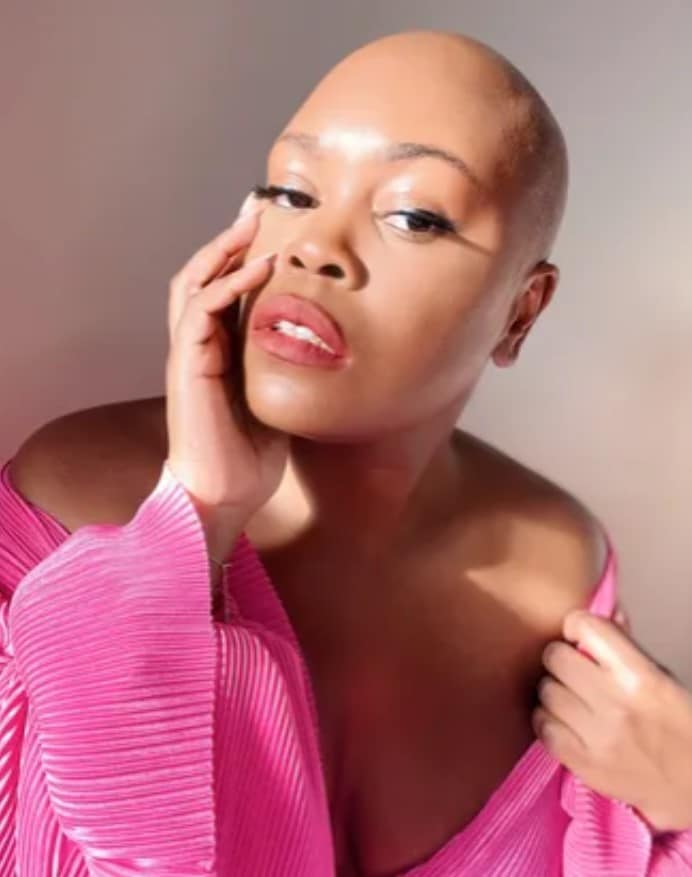they have been called names and bullied because of their hair or lack thereof,” Knight shares.
Knight, herself, has felt the impact of feeling self-conscious due to her condition.
“Early on, I wore wigs and extensions, using them as a crutch to hide my alopecia from the world. I became self-conscious of my hair loss, which led to social anxiety that I still deal with,” Knight adds. “I still find it hard to focus in social settings. I feel extremely self-conscious. I spent so many years hiding my hair loss and worrying about what people thought that I started to not go out and socialize.”
Like many Black women, Knight says so much of her identity was tied to her hair. Her hair was her creative outlet and without it, she felt lost. When she wore a wig, she felt like people were laughing at her.
By 2018, Knight had lost more than half her hair, so she decided to shave it off. Although she was tired, she admits she wasn’t completely ready to do so.
“At first, I felt unattractive and became obsessed with perfection. I figured if I was bald, everything else had to be perfect. I lost a lot of weight.,” Knight recalls.

Taking back control
Despite the wave of emotions she felt, Knight says shaving her head was her way of taking back control.
“The journey since has not been easy. I’ve been misgendered. I’ve been misdiagnosed. I’ve been misunderstood. Talking about my hair loss more openly left me open to ridicule and mean jokes about how I looked,” Knight shares.
However, she has been able to find solace in the community of people she met online. “Eventually, I started to connect online with more and more women on the same journey as me. This community has helped me feel less alone,” Knight adds.
Although Knight is in a good place now and has found power in embracing her baldness, she hasn’t completely tossed the wigs to the side. “I now have a business dedicated to them — I wear them as add-ons, not something to hide behind,” she says.








